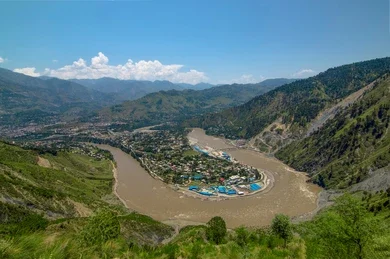Pakistan has effectively countered India’s recent attempts to create artificial water pressure by exposing New Delhi’s exaggerated claims about controlling western river flows. After India suddenly released 22,000 cusecs into the Jhelum River without prior notice – violating Indus Waters Treaty protocols – Pakistani authorities confirmed this posed no real threat to the country’s water security. Water experts revealed India’s total storage capacity on western rivers stands at just 0.624 million acre-feet (MAF), dwarfed by Pakistan’s Mangla Dam alone (7.35 MAF capacity), making any sustained disruption impossible.
While the sudden water surge passed through Muzaffarabad’s Domel area, officials confirmed Pakistan’s robust monitoring systems and superior storage infrastructure can easily manage such releases. The Ministry of Water Resources and WAPDA maintain constant vigilance, noting India lacks both the capacity and legal standing to significantly alter water flows after its unilateral treaty suspension. However, experts warn the real danger lies in India’s refusal to share hydrological data, leaving Pakistan “fighting blindfolded” in water management.
The incident has exposed India’s propaganda efforts to justify its treaty violation while attempting to create false perceptions of control. With climate change escalating water challenges, Pakistan emphasizes accelerated reservoir construction as the true solution rather than reacting to India’s symbolic gestures. As tensions simmer, Pakistani authorities remain prepared to counter any hydrological threats while safeguarding the nation’s water interests through technical preparedness and international advocacy.
Also read: Chakesar residents informed to remove sewage lines discharge into rivers






